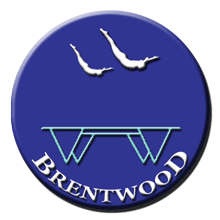A coaches perspective of sports medicine
Written by Martin Laws, Chairman, National Trampoline Technical Committee and Director, Jumpers Rebound Centre, Gillingham
During my 30 years involvement in the sport of gymnastics and trampolining I have seen a growing demand for the services of specialists. This demand has arisen from a number of sources:
- Increasing high competitive demands now the sport is part of the Olympic Games.
- Changes to “professionalism” of coaching delivery required by government, national governing bodies and indeed the participants themselves.
- Increasing litigation
Coaches are now forced to improve their knowledge, practices and general attitudes if they are to remain coaching high performance. This is not all bad news, it has for me, helped to encourage specialists to assist, like those involved in sport science and medicine. Indeed I myself have attended courses in Sports Massage Therapy and Sports Psychology. I have engaged with a wide range of specialists from scientists to osteopaths. However this all within the usual constraints of volunteers with little or no money.
So why should highly skilled professionals volunteer and work at local clubs for free?
We all know about the increased marketing arguments and this does bear some reality. Some will naturally do this work because they love either their own work or the sport/s they deliver in. But there is one more major reason often forgotten.
I am increasingly frustrated by experience and tales of “advice” given by both NHS and private medical staff that is completely inappropriate for the patient and situation. I remember arriving at the local A&E to find my son who had partly dislocated his shoulder and diagnosed as rupturing the acromioclavicular ligament in a cycling accident being told by the registrar “and of course you won’t be able to do serious sport again, don’t you agree dad”… You can picture my response at this stage! He went on to compete and win some two weeks later. I hear from competitors about comments on how dangerous or damaging our sport is, complete twaddle! (see Colin Paterson's physiotherapy article, or Jonathan Betser's intro to injuries).
So how do we all gain a better understanding of each others’ roles and the potential gains from each service? My suggestion is further mixing, volunteering and simply being there to witness a sport before making decisions on remedial therapy. I have been very impressed by some of our local specialists, who have at least made a contact (with the patient’s permission) with me as the coach involved. I have endeavoured to make sure they have visited and viewed the training environment. These ways of working together as a team means these specialists have been able to deliver top class advice and therapy. They have understood the three stages of sports therapy delivery at the core (pre, intermediate and post competitive activity).
They have gained the trust of both patient and coach: even parents, if younger children. This trust means their advice is respected and listened too not dumped or rejected as so many are. I have always viewed coaching competitors as a team approach. Sometimes the competitor themselves will not pass information or even know the reasons why a particular technique is used. Communication with the coach is vital to avoid repeat injury or even potentially faulty diagnosis.
Yes it is time consuming, something we all have trouble with. However it is amazing how much can be gained from involving coaches in treatment!
© Martin Laws
 ®
®









